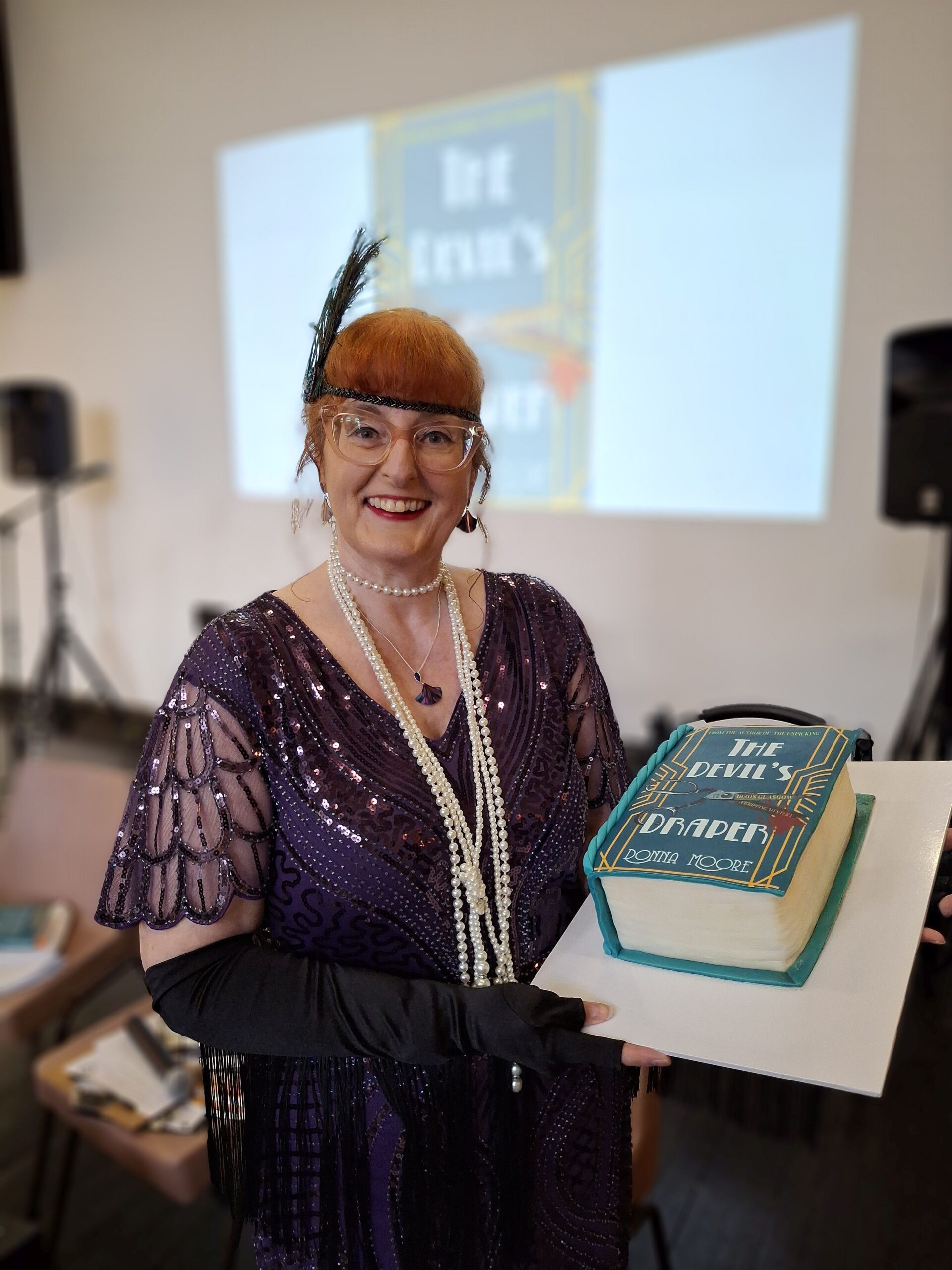The years spanning the height of militant suffrage activism coincided with ‘The Golden Age of Postcards’ (1900-1918). New technologies in printing and photography, changes in regulatory restrictions and the standardisation of format, along with wide availability and low cost, fuelled demand. Multiple daily postal deliveries enabled messages to be sent and received on the same day in most British towns and cities. These circumstances conspired to set a context where postcards, including those with propagandist and sardonic images, had wide public appeal. These examples capture how real life events, including militant suffragette actions, were parodied, and demonstrate how women were often mocked by postcard publishers.
Related Posts
Recent Posts

Story Cafe round up: The Devil’s Draper with Donna Moore
Pauline gives us the low-down on this fabulous Story Cafe! A very special event with 1920s dance music, Donna in an amazing period costume, china cups and saucers, a beautiful […]

Hope in our past for our future: the ‘For Peace!’ exhibition at GWL
‘For Peace!’ is displayed at the Glasgow Women’s Library until Saturday, 5th July. It is wheelchair accessible and free to enter. Check out all GWL events via the online events […]

Story Cafe round up: Turkish writers
Pauline share news from our April Story Cafe… Wendy welcomed everyone and thanked us for coming to Story Cafe on such a lovely day. She was featuring Turkish writers today […]
Upcoming Events
Reading Group for Muslim Women
Monday, 19th May, 10:30am
If you are passionate about books and love to share them with others then this group is for you!
Conversation Café
Wednesday, 21st May, 12:30pm
Join us for a conversation, tea and games while we practise English and Scottish words and phrases and learn about each other’s lives and cultures.
Women Making It
Friday, 23rd May, 10:30am
Join us this Spring for a range of GWL’s bitesize feminist crafting sessions, including clay work, basket weaving, quilling, and much more.



